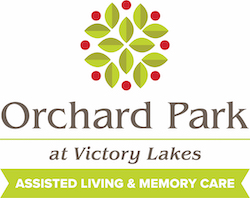Many seniors see cognitive declines as they age. When someone is diagnosed with dementia, cognitive declines may occur rapidly, leading to safety concerns. When entering an assisted living program, therapy is an essential part of the care provided. Exploring the reasons for therapy is vital for people who want to help their senior loved ones adapt to a more monitored life.
Understanding the Importance of Senior Therapy Programs
When people enter assisted living communities, they often face stress, especially in the beginning. Going from complete independence to a monitored living situation produces changes many seniors are not prepared for right away. With therapy, seniors living in these communities will reap the following benefits.
Therapists Handle Resident Concerns
Adapting to a new lifestyle can be overwhelming for seniors. Sometimes, seniors begin exhibiting out-of-character behaviors because they are under stress and cannot communicate their issues to caregivers. Therapists are trained to recognize the underlying concerns causing changes in behavior.
These professionals train other staff members giving residents memory care so they can be prepared to spot problems and act appropriately. Therapists also help families and caregivers separate the disease from the dementia sufferer.
Therapy Helps Residents With Declines in Health
Those suffering from dementia in any form can begin to experience declines in health that sometimes go unnoticed at first. Therapy seeks to monitor seniors and ensure they are functioning at a normal physical and cognitive level. Noticing the most minute of changes will allow therapists and other staff members to take action to protect a resident’s health.
Therapy is considered the best protection against health declines associated with dementia diagnoses. As the senior population grows, therapists will become more essential than ever thought possible.
Therapy Protects and Promotes Wellness
When studying the effects of therapy on those with dementia, scientists have discovered a direct link between interventional therapy and improved well-being. Therapy is not only for the sick and those with disabilities, it is also for seniors of all levels of health. Most people living in a senior living community require therapy for at least one of their daily tasks.
Offering therapy is an essential part of the integral care provided by assisted living homes. Assisted living communities must offer therapy for the population that will rely on these services for their daily lives.
Therapy Addresses the Unique Needs of Seniors with Alzheimer’s and Dementia
Occupational and physical therapy are critical for seniors receiving interventional care. Therapy seeks to address the foundational issues behind the way dementia sufferers behave. For instance, someone with dementia may normally have a very quiet and easygoing personality. Suddenly, this person can become irate, irrational, and even aggressive. It can become stressful to handle a loved one who has suddenly begun to change.
Getting help from an outside source that delivers therapy and other valuable resources is essential for treating dementia. Therapy addresses the frustration felt by dementia sufferers as they lose some aspects of their normal function with declines in cognitive performance.
While some forms of treatment focus more on the disease, therapy seeks to focus on the person. Because there is always a level of frustration for seniors transitioning to a new way of life, therapy is there to make the transition easier and less traumatic. Therapy helps individuals overcome their fears and the obstacles that may be standing in the way of living as independently as possible.
Assisted Living Communities Help the Aging Population Handle Life Changes
A dementia diagnosis sometimes strikes fear in the hearts of the sufferer and those they love. Thankfully, a diagnosis of this magnitude now offers more hope for longevity and disease management. Although there is no cure for dementia, advances in treatment are allowing people to live more independent and productive lives.
Because dementia and Alzheimer’s are on the rise, communities must prepare for an influx of residents needing various forms of therapy. Both occupational and physical therapy are necessary for dealing with the complex constraints placed on dementia sufferers and their families.
Although therapy cannot cure the disease, it can make life better for the resident. Therapy is a patient-focused initiative that revolves around keeping residents happy, secure, and safe as they transition through the many life changes a dementia diagnosis brings.
Here at Orchard Park at Victory Lakes, we provide a safe and welcoming atmosphere for seniors. We deliver the gold standard of care while providing physical and occupational therapy groups for our residents. With a beautiful community filled with amenities, we present the highest level of care.






